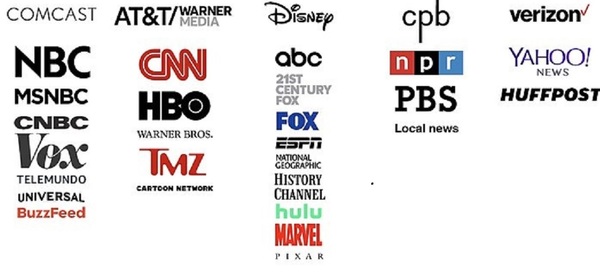
–>
July 16, 2022
I’ll confess — I’m a news junkie, a dangerous addiction in the 21st century. I grew up with dinner discussions about politics. I remember Ike and Nixon and the Watergate mess. I lived through the Carter years and enjoyed Regan’s successes. By the 1990s my interest was pumped — I hate to admit it — by the goings on in the Clinton White House. The news began to look like a soap opera, and, like being unable to look away from a train wreck, I was hooked. So, I began to build my own tactics for news-watching. One can stay informed and sane at the same time; just follow these suggestions:
‘); googletag.cmd.push(function () { googletag.display(‘div-gpt-ad-1609268089992-0’); }); }
Strategy #1 — I watch the rhetoric. Whether it be a rightish or leftish publication, the heavy emotionalization of the bare facts needs to be taken into account and dialed back. Headlines featuring the word BREAKING usually in all caps followed by screamers !!!! is a tipoff. Words like massive, destroyed, accost, blistering, and meltdown used when big, put down, heckled, angry, or upset would do, indicates a desire to stir us up rather than inform. Unfortunately both sides indulge in such sleazy tactics. News is supposed to be about truth. If someone loses an argument, that’s not being destroyed — embarrassed, maybe, but not destroyed. Exaggeration is not accurate reporting and it can, if we’re not wearing our news-reading armor, raise our blood pressure without us ever realizing what happened.
Strategy #2 — Speaking of words, start keeping a mental list of word changes. Switching meanings for common words is a method used by those with a nefarious agenda. Words like white supremacy, gender, oppression don’t mean what they used to mean, so translate, i.e. the word racism merely means, “I’ve lost this argument.”
Strategy #3 — I keep it in the present. Someone’s predictions may make interesting reading, and may be helpful, but the bottom line is that we don’t know the future, can’t know the future — especially when we’re ignoring the past. Predictions are not news. I’ve lived long enough to have outpaced half a dozen dire predictions about the climate, about overpopulation, about the stock market. Most of the dire warnings are just designed to scare us; the people issuing the warnings know that frightened people are easier to push around. Look what we were willing to do when COVID hit. The whole nation slipped into a toilet paper frenzy, went home and hid out for a year. I’ll listen to dire weather warnings — those guys don’t see the future, but they do see where the storms are in real time and what direction they’re heading. Climate warnings, however, are another thing altogether. Nobody, no matter how white his science-guy jacket, can tell what conditions will be like in a hundred years, and neither can his computer models.
‘); googletag.cmd.push(function () { googletag.display(‘div-gpt-ad-1609270365559-0’); }); }
Strategy #4 — What one person says to another is not news either. So a movie star makes a stupid remark on “The View” — who cares? So the First Lady uses a clumsy reference to tacos — we expected better? So Trump tweeted something — big deal. Some news articles should be ignored because they’re nothing more than 2nd grade tattling.
Strategy #5 — I assume that the headlines are inaccurate. The first news that hits the front page will get something wrong. This constant race to be number one with a story will require corners cut somewhere so rumor and imagination will fill in.
Strategy #6 — I keep in mind the fact that most journalists went to schools that convinced them that their job was to “change the world.” Every story the majority of journalists write has that push behind it, so as we read we should be translating. I like to think of it as turning the dial down, weeding out the hysteria and duplicity they use to “make the world a better place.” The concept of the 4th Estate that was expected to keep an eye on government, hold officials’ feet to the fire, and expose wrongdoing is too plebian for today’s elite reporters.
 Strategy #7 — I also keep in mind that post-modern America no longer believes in truth. I once had a student who, mid-discussion of something, pounded on her desk and exclaimed with absolute surety that, “There is no such thing as absolute truth!” Back then the majority of the class laughed at the self-refuting nonsense of that statement, but I doubt she’d be teased today. Truth has become nothing more than personal preference — we each have our own flavor. I would think that would be a handicap for journalists, but evidently it just fuels their imaginations.
Strategy #7 — I also keep in mind that post-modern America no longer believes in truth. I once had a student who, mid-discussion of something, pounded on her desk and exclaimed with absolute surety that, “There is no such thing as absolute truth!” Back then the majority of the class laughed at the self-refuting nonsense of that statement, but I doubt she’d be teased today. Truth has become nothing more than personal preference — we each have our own flavor. I would think that would be a handicap for journalists, but evidently it just fuels their imaginations.
Strategy #8 — This one is a little difficult to maintain, but if we’re trying to be our best selves, it’s a must. News is not gossip. It is not rumor. It is fact only. This is what made the whole Russia collusion story so awful. None of it was true, but it was such a salacious story that people just slurped it up. A little bit of gossip helps the propaganda go down. We’re so inundated with juicy stories that we’re immune to the awful truth when it does arrive — i.e. the treachery of Hunter’s laptop.
It’s one thing when a married official is caught being unfaithful to his wife, but if he’s unfaithful with a Chinese communist spy, that’s another thing. It’s one thing if a congresswoman’s husband gets caught driving drunk, but another altogether if he got rich on the taxpayer’s dime. It’s one thing to monkey around with an intern in the Oval Office, and another entirely to travel with Jeffrey Epstein and his underage girls. It takes some discernment and patience to tell the difference between that which is criminal and what is merely salacious, between that which is morally reprehensible and that which places the nation at risk. I don’t care how much cocaine the president’s son consumes, but I do care that he’s selling something to the Chinese — something they find very valuable.
‘); googletag.cmd.push(function () { googletag.display(‘div-gpt-ad-1609268078422-0’); }); } if (publir_show_ads) { document.write(“
Strategy #9 — I take most polls with a grain of salt. We’re rarely told exactly what the questions were, or how many people were polled, or what demographic they were comprised of. How the pollster phrases a question can make a world of difference in the results. I’m curious about what exactly researchers are asking that can show that a third of Americans think Joe is doing a good job. Really?!
Strategy #10 — Everything in moderation. We can’t know everything, so we shouldn’t try. Never in history has mankind had access to so much unfiltered information. I limit the dosage — too much can be deadly.
So why watch or read the news? Because it is possible to gather a sense of what is going on and as citizens of this country, we’re obliged to do so. I also believe that if we open the newspaper knowing what truth actually looks like, we can see the lies for what they are. We can tell when we’re being manipulated. We all have common sense — not that the elite find that impressive, but we know in our inner selves that grooming children for sex is wrong. We know that Russia has nothing to do with inflation. We know our president is non compos mentis and our vice president not much better.
Properly handling the news is all a part of being, “wise as serpents and harmless as doves.” (Matt. 10:16) Let us put on “the whole armor of God,” (Eph. 6:12) and go face the world.
Image: Wikideas1
<!– if(page_width_onload <= 479) { document.write("
“); googletag.cmd.push(function() { googletag.display(‘div-gpt-ad-1345489840937-4’); }); } –> If you experience technical problems, please write to [email protected]
FOLLOW US ON
<!–
–>
<!– _qoptions={ qacct:”p-9bKF-NgTuSFM6″ }; ![]() –> <!—-> <!– var addthis_share = { email_template: “new_template” } –>
–> <!—-> <!– var addthis_share = { email_template: “new_template” } –>





